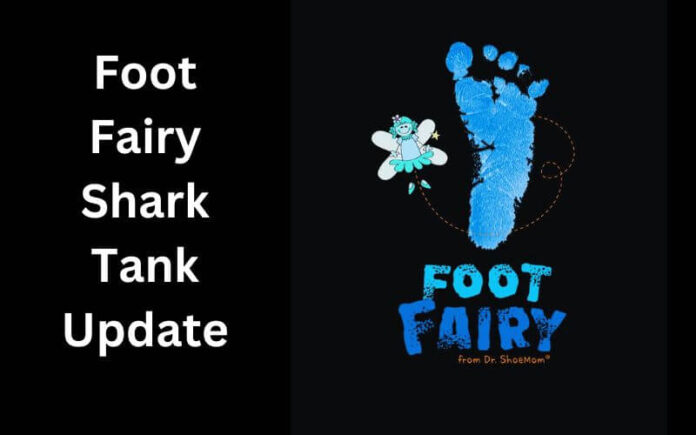In the world of entrepreneurship, Shark Tank has become a platform for innovative ideas to gain exposure and secure investments. One such product that caught the attention of the Sharks was Foot Fairy, a mobile app designed to help parents find the perfect shoe size for their children. In this blog post, we’ll take a closer look at Foot Fairy’s journey on Shark Tank, the deal they secured, and what happened to the company after the show.
The Foot Fairy Pitch and Deal at Shark Tank
Foot Fairy, founded by Sylvie Shapiro and Nicole Brooks, pitched their innovative app to the Sharks in Season 5 of Shark Tank. The app used an iPad’s screen to take an imprint of a child’s foot, accurately measuring its size. It then linked parents to shoes that fit the exact size criteria on Zappos, a major online shoe retailer. Shapiro and Brooks asked for $75,000 in exchange for a 15% stake in their company.
The Sharks were intrigued by the concept, but they had concerns about the app’s unique features and the potential for major retailers to copy it. Despite these reservations, Mark Cuban saw potential in Foot Fairy and offered $100,000 for a 40% stake in the company, contingent on meeting various conditions. Shapiro and Brooks accepted the deal, and it seemed like Foot Fairy was on its way to success.
Foot Fairy Is Gone Out of Business
Unfortunately, things didn’t go as planned for Foot Fairy after their appearance on Shark Tank. The deal with Mark Cuban never closed, and the company shut down in May 2014, just a few months after the episode aired.
The reasons behind the company’s failure are not entirely clear, but they likely faced challenges in promoting the app and integrating it with Zappos. Additionally, Foot Fairy may have struggled to establish a strong online presence and market its product effectively.
What Was Foot Fairy’s Net Worth?
At the time of their Shark Tank appearance, Foot Fairy was valued at $500,000, based on the $75,000 investment for a 15% stake that Shapiro and Brooks were seeking. However, after the company shut down, it’s difficult to determine its actual net worth.
The value of a company can fluctuate based on various factors, including its assets, liabilities, and potential for future growth. In the case of Foot Fairy, the company’s net worth likely decreased significantly after it ceased operations.
Customer Reviews and Feedback
Although Foot Fairy is no longer in business, it’s worth examining the customer reviews and feedback they received during their short time in operation. Many parents praised the app for its ease of use and accuracy in measuring their children’s feet.
They appreciated the convenience of being able to find the right shoe size from the comfort of their own homes. However, some customers reported issues with the app’s compatibility with certain iPad models and expressed concerns about the limited selection of shoes available through the Zappos integration.
Business Overview
Foot Fairy’s business model was based on generating revenue through commissions from Zappos when customers purchased shoes using the app. The app itself was free to download and use, making it accessible to a wide range of parents.
However, the company faced challenges in differentiating itself from potential competitors and establishing a strong brand identity. In hindsight, Foot Fairy may have benefited from expanding its partnerships beyond Zappos and investing more in marketing and promotion to reach a larger audience.
Conclusion
The story of Foot Fairy serves as a reminder that securing a deal on Shark Tank doesn’t guarantee long-term success. While the app had a promising concept and received positive feedback from customers, it ultimately failed to overcome the challenges it faced in the competitive world of mobile app development. Despite this setback, the founders of Foot Fairy, Sylvie Shapiro, and Nicole Brooks, have gone on to pursue other successful ventures in their respective fields. Shapiro continues to practice podiatry and has launched a line of spa and resort footwear, while Brooks co-founded a men’s skincare line called Strike Club.
Foot Fairy’s journey highlights the importance of innovation, adaptability, and strong marketing in the ever-evolving landscape of entrepreneurship. While not every Shark Tank deal leads to a happily-ever-after ending, the lessons learned from these experiences can be invaluable for aspiring entrepreneurs. As the saying goes, “Sometimes you win, sometimes you learn.”
Also Read:
